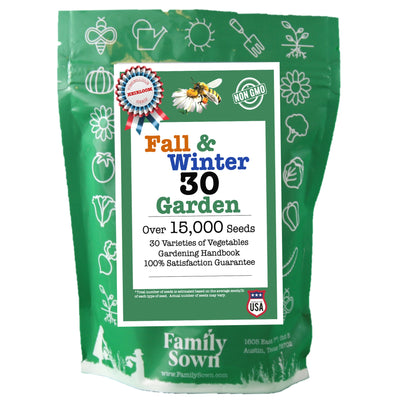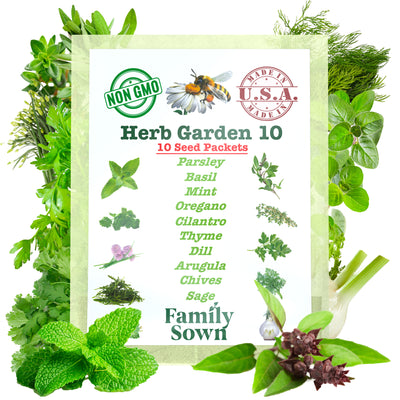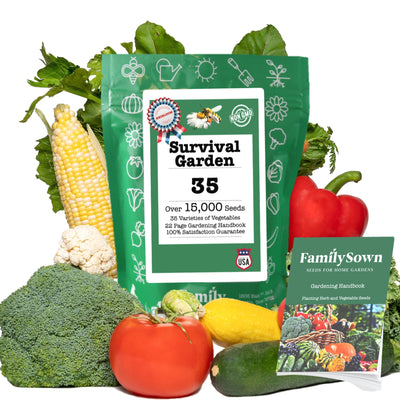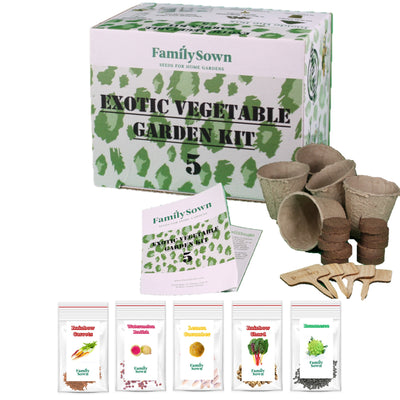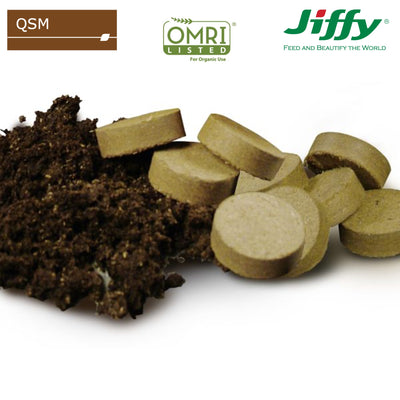Rotating Crops:
Different garden plants require different types of soil nutrients. For many generations, farmers and gardeners have rotated crops, left garden spots fallow, or added amendments when needed to keep their garden yields higher. Do you need to rotate plants? Not always. Some garden techniques allow you to keep the same plants in the same spot, year after year. Keep reading as we touch on crop rotation in the garden.
Rotation Ratios
Ratios are commonly used to describe crop rotations; e.g. "rotate carrots on a 1:4 cycle". The first number in the ratio describes how frequently you should rotate carrots (1=annually, 2=every two years, etc). The second number relates to how many years you should wait before planting carrots in the original plot. Therefore a 1:4 cycle translates to - rotate carrots annually and plant them in a new location every year for four years before planting them again in the original plot. Other vegetables will have different time rotation formulas.
Root vegetables
Nutrient depletion is not the only reason why you should rotate crops. For example, root vegetables should be rotated every year so that they are not grown in the same spot for 3-4 Years. The rotation of root crops is not about soil nutrients; it's about avoiding soil pests. For example, carrot fly larvae, beetle larvae, and other types of pests that destroy root crops are less likely to be an issue if you move the crop each year.
Heavy Feeders
Heavy feeders like tomatoes and peppers deplete nutrients in the soil. If you don't rotate heavy feeders or amend the soil, you will experience diminishing returns. Frequently amending the soil can get expensive. It's much more affordable and easier to rotate heavy feeder plants. Ideally, you would move them into a garden bed where legumes grew. Beans and peas help fix nitrogen in the soil. You can also use cover crops during the off-seasons to help regenerate the soil.
If you rotate heavy feeders, you will still need to amend the soil with compost or fertilizer, but on a much smaller scale than if you kept heavy feeders in the same spot. Rotating heavy feeders also helps to avoid pest issues.
Other Crops that Replenish the Soil
Cover crops are a good investment. Peas, beans, parsley, red clover, comfrey, and stinging nettle are some plants that help soil regeneration. Cover crops require little care, and some will grow well in cooler weather.
Broccoli for Eliminating Pests
Broccoli and Cabbage are two brassica plants that have few insect pests. Inter-planting broccoli with plants that have more pest issues is an excellent way to discourage pests in the garden. Companion planting is a beautiful way to garden, and it is low-cost.
Garden Warfare!
Plants have a way of protecting themselves from encroaching neighbors. Plant warfare in the garden is not uncommon. Potatoes will take down Cucumbers. Pole beans and beets will wage war, and both will suffer. Onions will destroy asparagus. Cabbage and mustard will also wage a horrific battle over space, and both will suffer. Mustard and cabbage are in the same family.
Families Of Plants That Should Not Be Planted In The Same Place
Another way to look at family of plants and crop rotation is to make a listing of plants in specific families and then keep those families on the same rotation schedule. For example don't plant nightshade plants — tomatoes, ground cherries, tomatillo, etc in the same place as another member of that family for four years. So where you put the tomatoes means you should not plant any other member of the nightshade family in that spot for the next four years.
Common plant families include:
Nightshade, Plants in the tomato family
Legumes — Beans, Peas and clovers
Cucurbits — Cucumbers, squash and melons
Brassica — Cabbage, broccoli, cauliflower, mustards, kale, etc.
Allium — Onions and garlic
Asters — including flowers but also lettuces, artichoke, sunflowers, etc.
Some of these are big families of plants. As you gather seeds for planting, divide them up into families. Legumes should be rotated each year but only to avoid pest issues.




